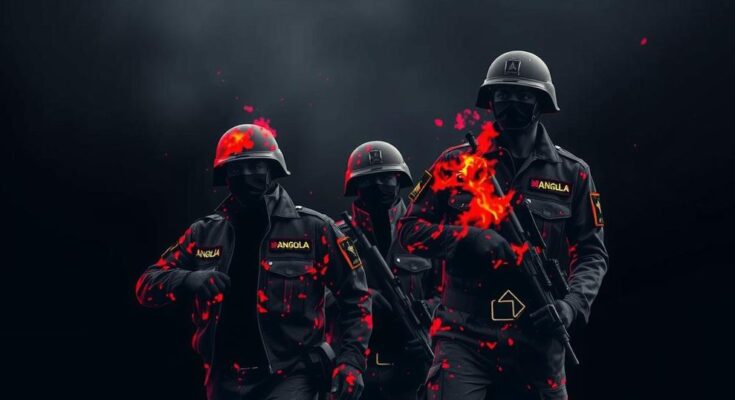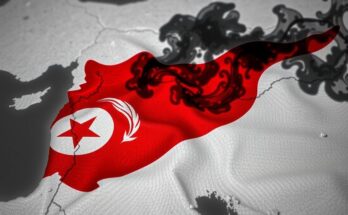Angola has accused the M23 rebels, backed by Rwanda, of violating a ceasefire agreement in eastern DRC, following clashes with the Wazalendo militia. The conflict resumed after M23 captured the town of Kalembe, prompting Angola to condemn this act as a serious breach of peace efforts, which endangers stability in the region. Fighting involving M23 has persisted, causing significant humanitarian turmoil.
Angola has formally accused the Rwanda-supported M23 rebel group of breaching a ceasefire agreement in the eastern Democratic Republic of Congo (DRC), as stated in a report published by AFP on Tuesday. This ceasefire had been established in early August, following diplomatic mediation efforts by Angola. However, violence erupted on Sunday between M23 forces and the government-aligned militia known as Wazalendo in a town located within North Kivu province, thereby undermining the tenuous peace accord. According to local reports, the M23 militants captured the town of Kalembe, which the Angolan government described as a “flagrant violation” of the ceasefire terms. Furthermore, the Angolan statement denounced this aggressive action, asserting it jeopardizes ongoing peace initiatives aimed at resolving the ongoing conflict. Witnesses reported that clashes commenced early Sunday morning, with heavily armed M23 combatants engaged in confrontations against the Wazalendo. Local sources recounted that M23 successfully took control of Kalembe by the afternoon after forcing Wazalendo units to retreat. Marcellin Shenkuku, a spokesperson for the Wazalendo, subsequently asserted that the militia has regained dominance over Kalembe and noted that no official forces from the Congolese army were involved in the conflict. Angola’s public condemnation is noteworthy, as governmental commentary on the frequent skirmishes involving M23 and pro-government militias is a rarity. Since initiating its military campaign in late 2021, the M23 group has captured significant territories in eastern DRC, resulting in the displacement of thousands and leading to a humanitarian crisis. Kalembe, with a population approximating 40,000, is situated along a critical access road that leads to valuable deposits of gold, coltan, and diamonds in the Walikale territory, which is to the west of North Kivu. The region is historically known for its wealth in minerals yet has been marred by a legacy of violence and the operations of various rebel factions across the past three decades.
The conflict in the eastern Democratic Republic of Congo (DRC) is rooted in a complex interplay of ethnic tensions, resource wealth, and historical grievances. The M23, predominantly comprised of Tutsi fighters, emerged in 2021, claiming to protect Tutsi communities against attacks from various local groups. The DRC’s North Kivu province is rich in minerals and has seen numerous insurgencies and external interventions, most notably from Rwanda, which has been accused of supporting M23. The fragile state of ceasefires in the region reflects broader failures in governance and stability, impacting civil society and humanitarian conditions.
The allegations made by Angola against the M23 rebel group underscore the ongoing instability in the eastern DRC and highlight the precarious nature of ceasefire agreements in this resource-rich but conflict-ridden area. The violation of the truce not only complicates peace efforts but also deepens the humanitarian crisis affecting countless civilians caught in the crossfire of ongoing violence. The international community must take note of these developments to foster meaningful dialogue and seek lasting solutions to the persistent conflicts in the region.
Original Source: www.barrons.com




